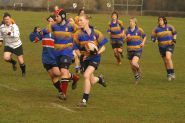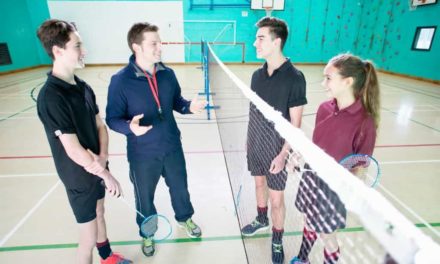Speaking to peers, both in the staffroom and through various social media channels, there seems to be a common trend amongst all teachers: it’s getting more and more challenging to balance all the roles of the profession – does something have to give? And if so, what?
The first thing to go for a teacher with limited time may be enrichment activities. In relation to the extracurricular provision that a department offers, PE teachers may find themselves in a unique position compared to other teaching staff as there is often an expectation for clubs and teams to represent the school. In this article, we suggest several strategies that may increase the efficiency of a PE extracurricular programme.
Student feedback on extracurricular preferences
Our first suggestion to ensure an efficient extracurricular programme is to gain student voice on what clubs your young pupil would like to attend. These could then be incorporated into the extracurricular calendar and could run on a half-termly basis.
The ‘staples’ of the calendar, for example, football, netball, and badminton clubs, could run for a full term whilst the additional clubs could rotate every half term. These will aid to keep your programme fresh and relevant, whilst engaging as many pupils as possible.
This also allows for staff to ensure that the clubs are run most efficiently – avoiding the frustration of giving up their valuable time for only a small handful of pupils to attend the club.
Consistent scheduling
Our second suggestion to improve your extracurricular offer is to ensure that your clubs are run consistently. Look ahead in the school calendar and check for fixtures, meetings and parents’ evenings which may cause cancellations, and either avoid booking clubs on these nights or advertise the cancelled dates to students as soon as possible.
Pupils may drop out of clubs quickly if they don’t get into the routine of a regular schedule, so be as consistent as possible. To support this, you may wish to consider running two clubs at the same time which could be run by one member of staff if an urgent meeting cropped up – for example, table tennis and badminton club could run side-by-side in the sports hall, or Y7 and Y8 football training could be offered on the same night.
Encourage participation regardless of ability
Our third suggestion is to ensure that pupils are aware that they can attend any club they wish to, regardless of their sporting ability.
Some pupils may just enjoy turning up and doing a little bit of extra physical activity without necessarily wanting to join a team or represent the club, so ensure that this message is clear to all students. Consider offering ‘social’ versions of certain sports clubs, where pupils can just turn up and take part with their friends. This offer may be particularly effective at lunchtime when pupils can drop in and take part.
Community links
Our final suggestion to ensure your extracurricular programme is efficient as possible is to ensure that clubs are linked to further progressions where appropriate. For example, the cross-country club could run for one half-term in the period leading up to the local competition.
It is also beneficial to advertise local clubs that pupils could join to pursue their love of sport even further. Consider contacting these clubs and asking if they’ll come into school to run a taster session at one of your planned extracurricular clubs to introduce pupils to the idea of joining the club and breaking down any barriers relating to accessibility that pupils may have.
Data from the Active Lives Survey (2021-22) indicates that only 47.2% of children and young people are meeting the guidelines of taking part in sports and physical activity for an average of 60 minutes or more every day. Our role as physical educators must continue to play a part in attempting to improve these figures despite the increasing demands of our workload, therefore any modifications which can be made to your calendar to sustain the offer without compromising staff time must be considered.
PE Office can help you create an inclusive programme of extracurricular sporting activities with skills-based lesson plans and coaching guides. For more information, contact us on 01909 776 900, send an email to mail@peoffice.co.uk or click here to book a demo.









